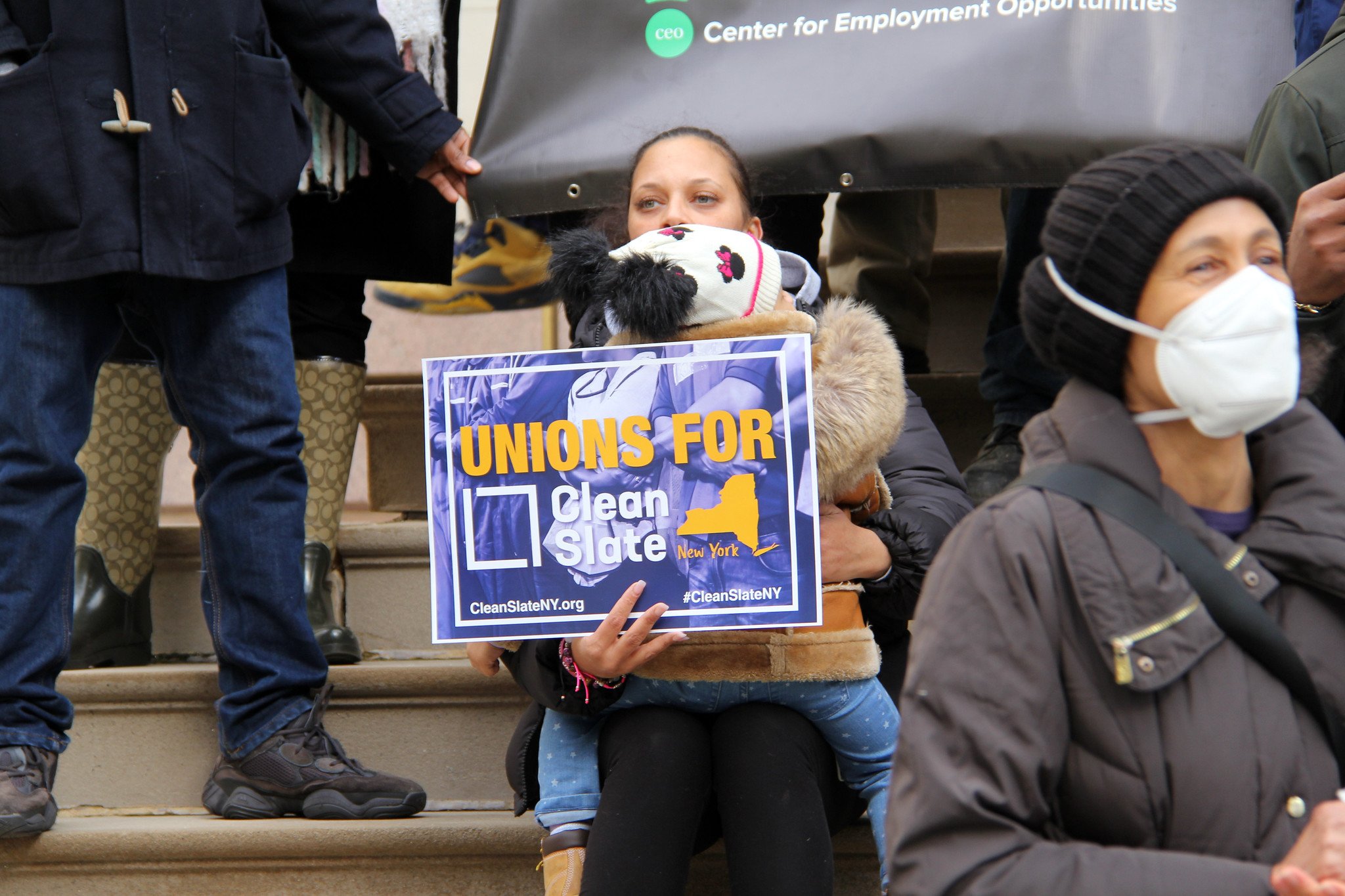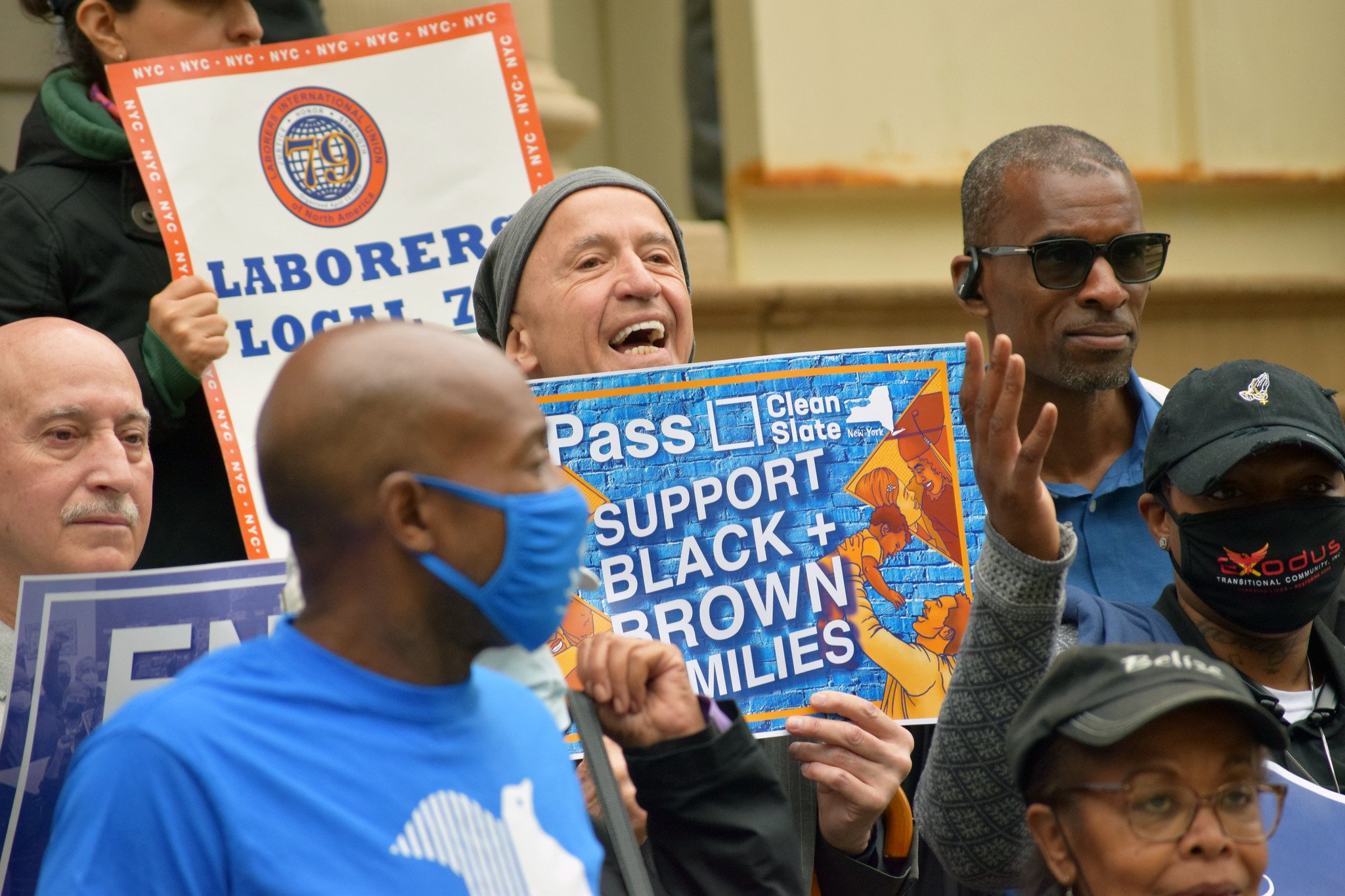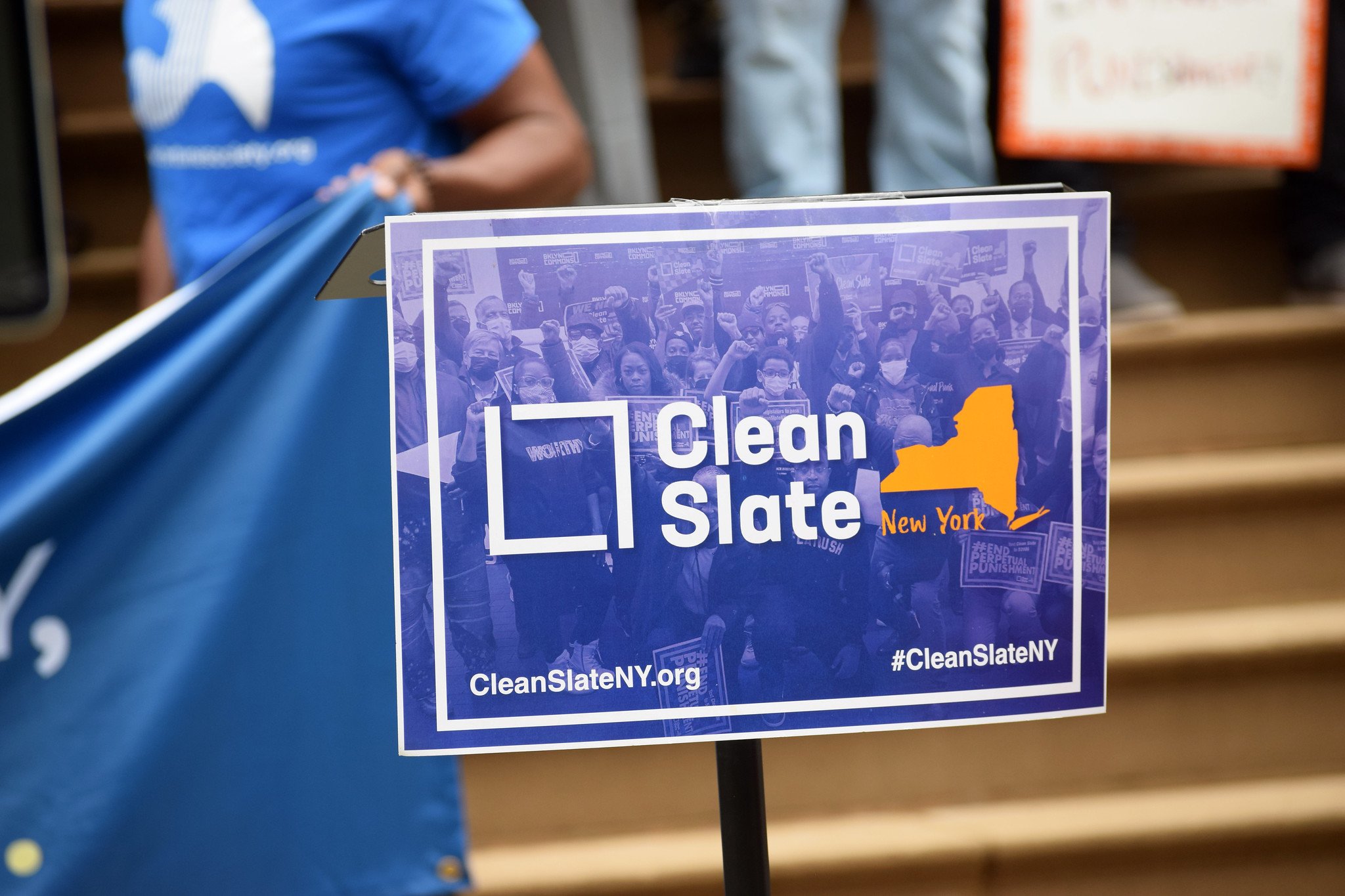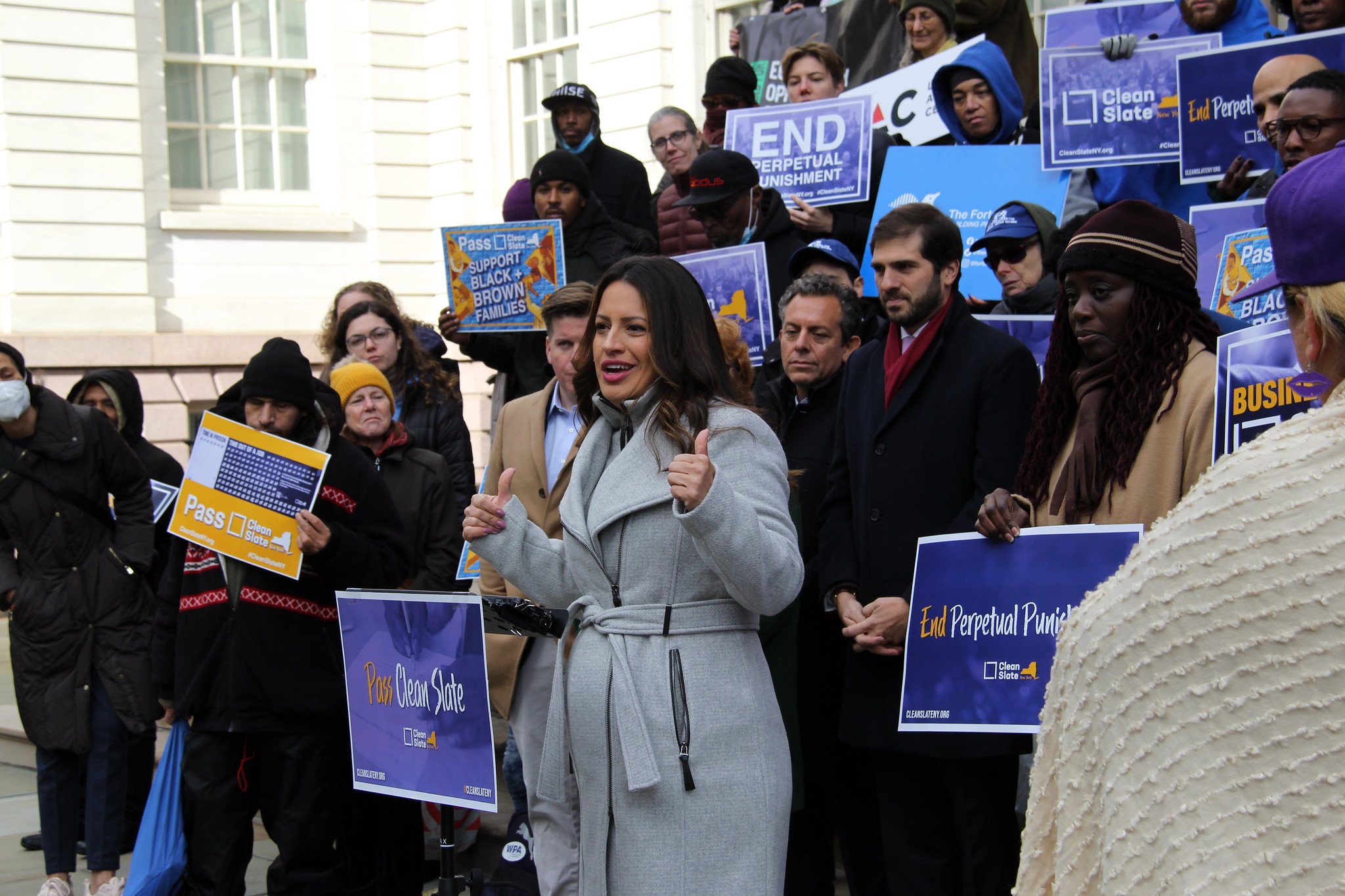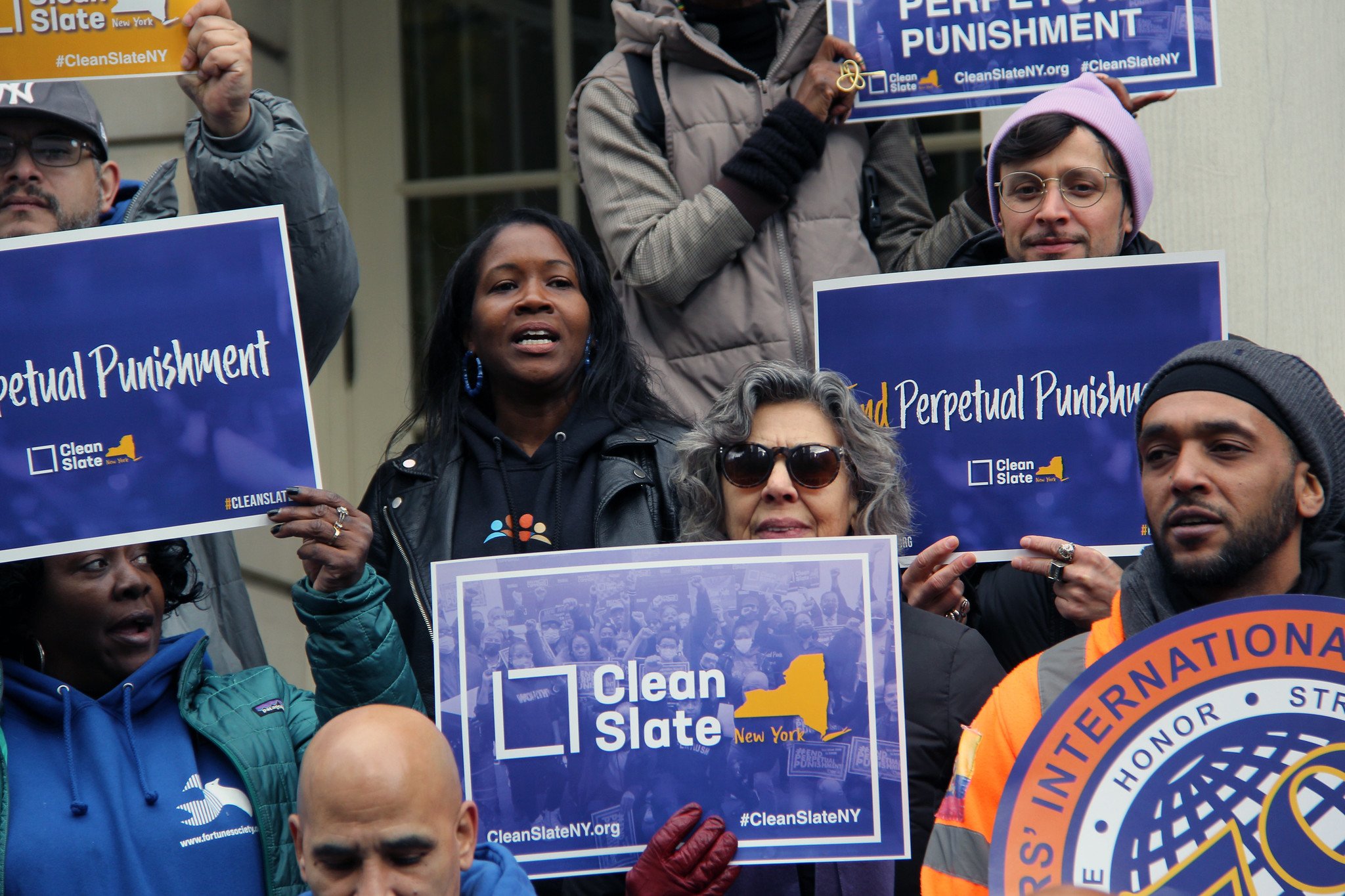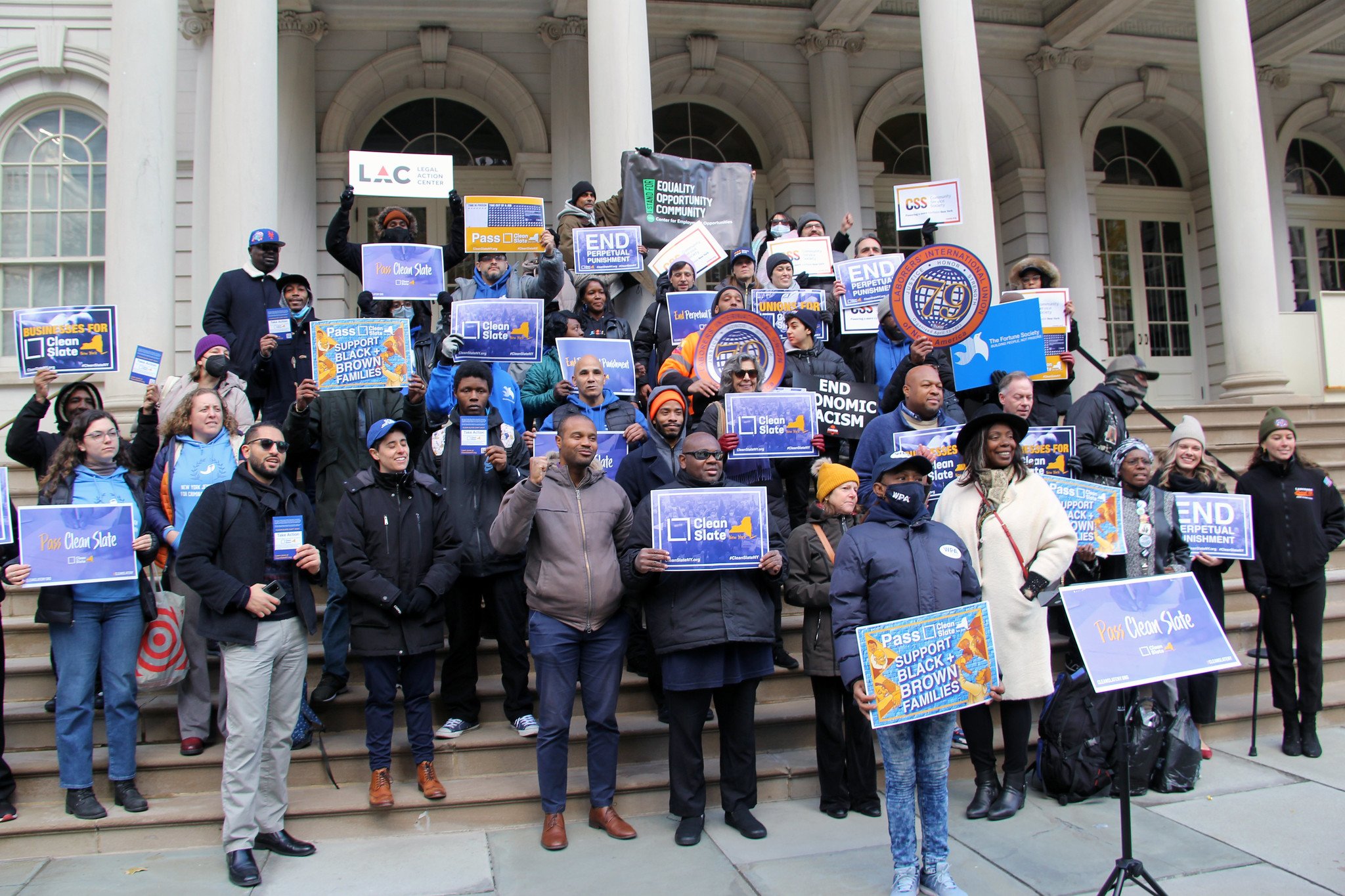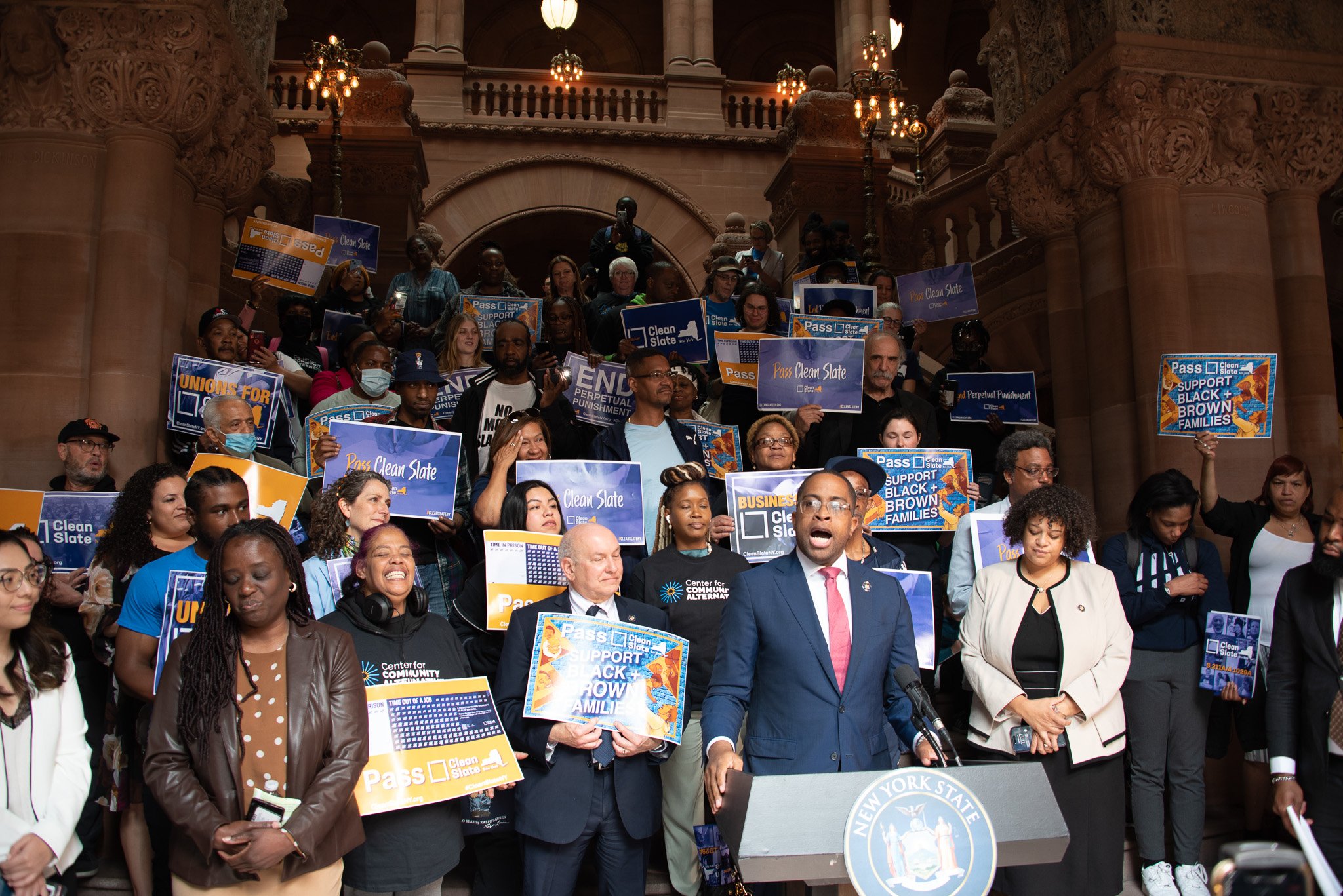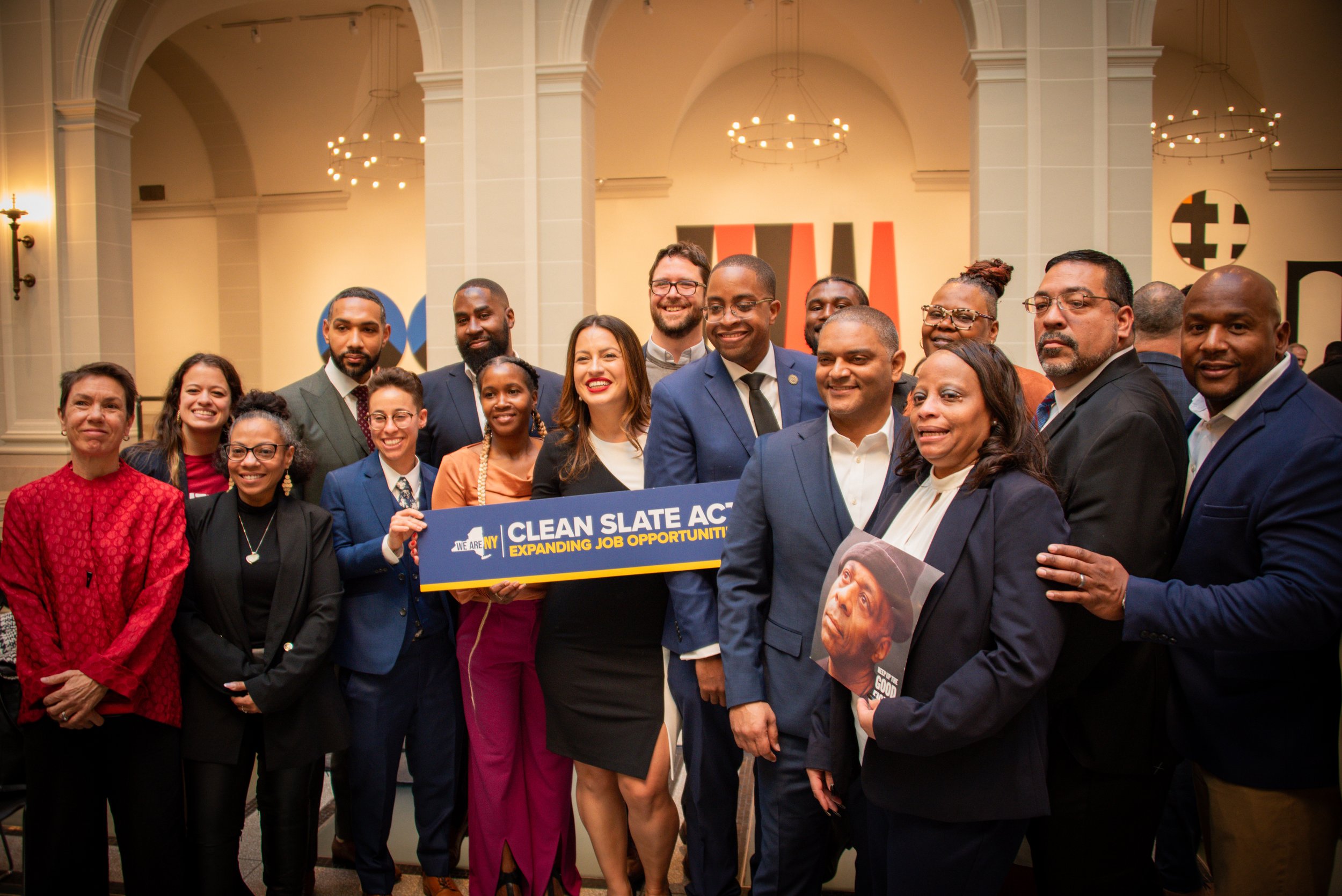CLEAN SLATE SIGNED INTO LAW
The Clean Slate Act (S7551A/A1029C) has been signed by Governor Kathy Hochul. After implementation, millions of New York families have the opportunity to thrive as past conviction records begin to seal. Have a question about the law or want to know what Clean Slate means for you? See our FAQ or attend a live event or one of our monthly live webinars. Want to spread the word about Clean Slate in your community? Download and post our flyer and plan an event with us. We can help with publicity, materials, and support from our organizers and attorneys.
THE BILL
Under the Clean Slate Act, New Yorkers will be eligible to have conviction records automatically sealed 3 years from sentencing for misdemeanors and 8 years from sentencing for felonies, not including time incarcerated. These timeframes are carefully calibrated to allow people with conviction records to move forward with their lives and access jobs, housing, and higher education. To be eligible for automatic sealing relief, individuals must have completed probation, parole or post-release supervision, and cannot have incurred any new convictions during the three or eight year waiting period. Sex offenses and non-drug Class A felonies are not eligible for sealing.
Clean Slate is an economic justice, anti-poverty, and racial justice bill that seeks to end the perpetual punishment and enable the 2.3 million New Yorkers with conviction records to access the employment, housing, education and other opportunities they need to successfully reenter and contribute to their communities. People returning to their communities after the completion of their sentence currently face a lifetime of civil consequences that keep them from meaningfully contributing to their families, community, and the state at large.
OUR VALUES
SAFETY
Housing, employment, health care, and education are life essentials that foster safety and empower communities to succeed, but these are the very necessities which people with conviction records cannot access. We make our communities safer when we allow people to access stable housing and employment.
A recent study found that within one year of clearing their records under a Michigan law, people are 11% more likely to be employed and earn 22% higher wages.
Individuals who cleared their records under this Michigan law were less likely than members of the general public to commit crimes in the 5 years after clearance.
Clean Slate is also good for our economy. New York State loses money by keeping people with conviction records out of its economy, and employers lose access to a broad and talented applicant pool. That is why New York’s largest employers and labor unions all support Clean Slate as an economic growth and economic justice measure.
Shutting workers with old convictions out of the labor market costs as much as $87 billion in lost GDP annually. Those with a conviction record lose nearly $500,000 in earnings throughout their lifetime.
New York’s economy as a whole loses out if we create barriers to jobs. The Brennan Center estimates that New York misses out on approximately $12.6 billion in lost wages every year due to reduced earnings related to a conviction record.

